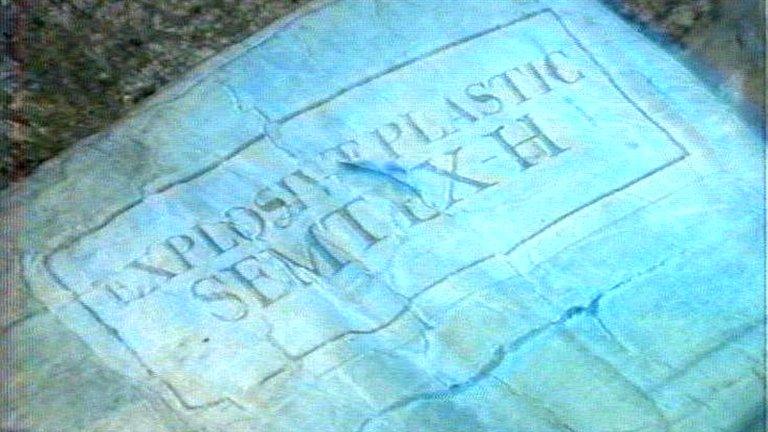Libya Troubles victims' deal exclusion 'regrettable'
- Published
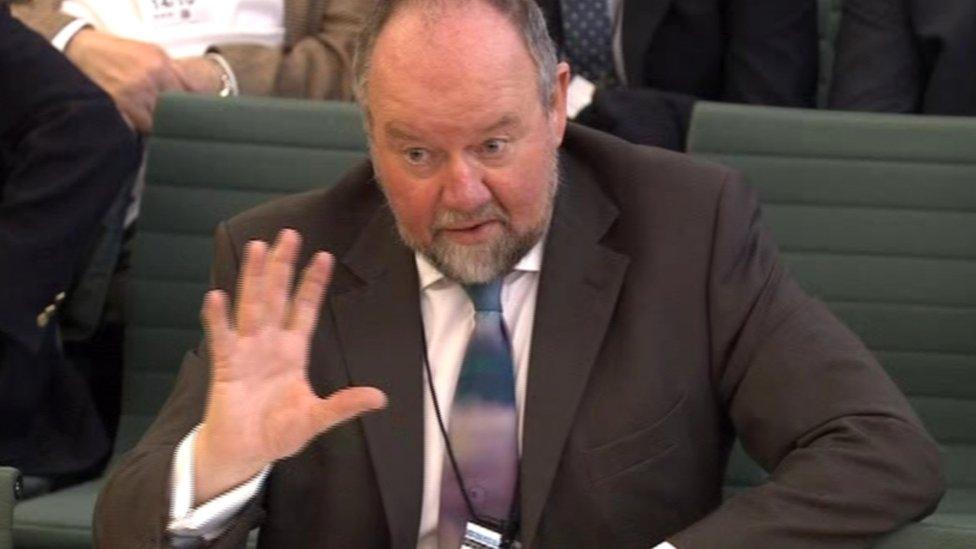
Sir Vincent Fean said the US decision to exclude Troubles victims was 'sad and negative'
A former UK ambassador to Libya has said a decision in 2008 to exclude Troubles victims from a US compensation deal was "deeply regrettable".
Sir Vincent Fean was speaking to Westminster's Northern Ireland Affairs Committee investigating compensation for Libyan-sponsored IRA violence.
Libyan Semtex was a key weapon in the IRA's Troubles bombing campaign.
While Libya compensated US victims of terrorism, UK victims were left out of the deal.
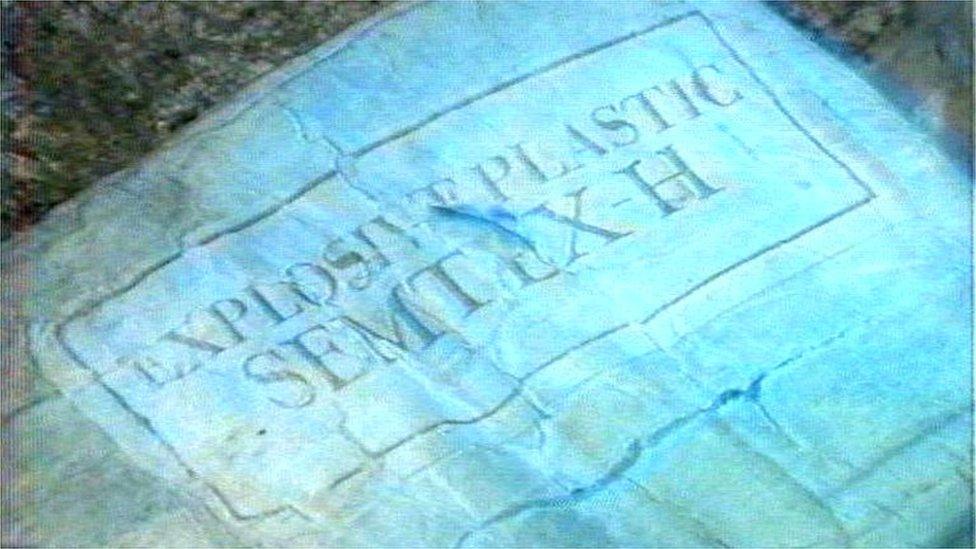
Libya supplied the plastic explosive Semtex to the IRA
Sir Vincent, who has since retired, told MPs it would have been beneficial if American victims and Troubles victims had joined forces in their compensation claim.
He said he found the US decision "sad and negative" and said he was not party to the decision taken in Washington DC.
"The United States had a large amount of influence at the time and indeed now, and joining with them would have increased the chances of success," he said.
"But the United States for reasons I do not fully understand did not wish to associate the UK victims with the US victims."
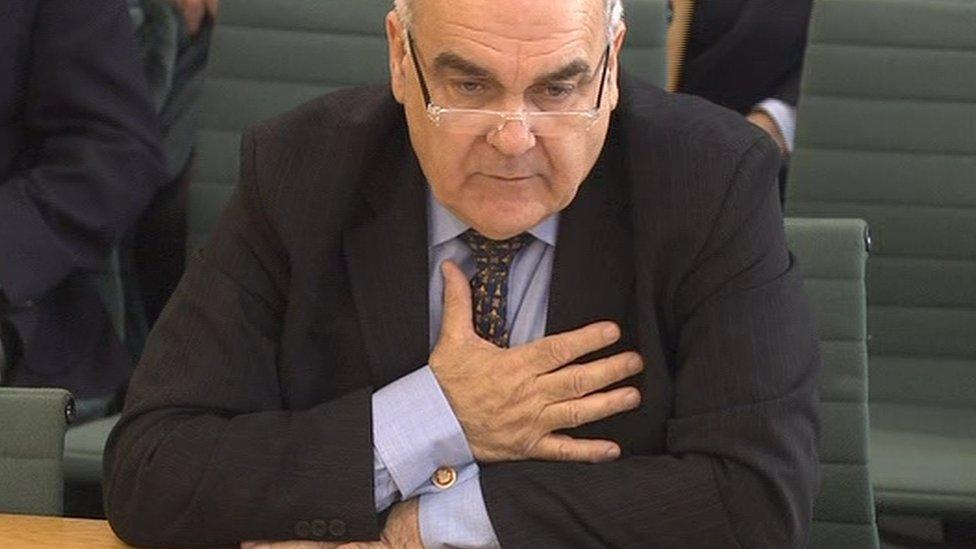
Andrew MacKinlay told MPs the case for compensation was overwhelming
The Northern Ireland Affairs Committee also heard evidence from former Labour MP Andrew MacKinlay, who was a member of the Foreign Affairs committee.
A year before he retired in 2010, Mr McKinlay visited Libya with DUP MPs Nigel Dodds and Jeffrey Donaldson.
Mr MacKinlay said the case for the Libyan authorities to compensate Troubles victims was "compelling and overwhelming".
He said the Conservative government in London should make the issue of compensation a top priority and that "there should be a minister on a plane today" to Libyan capital Tripoli.
He said the issue raised a series of important questions, and was critical of former prime ministers Gordon Brown and Tony Blair.
He recalled that during a short meeting between victims and Mr Brown, the prime minister's body language and responses "indicated a lack of real interest".
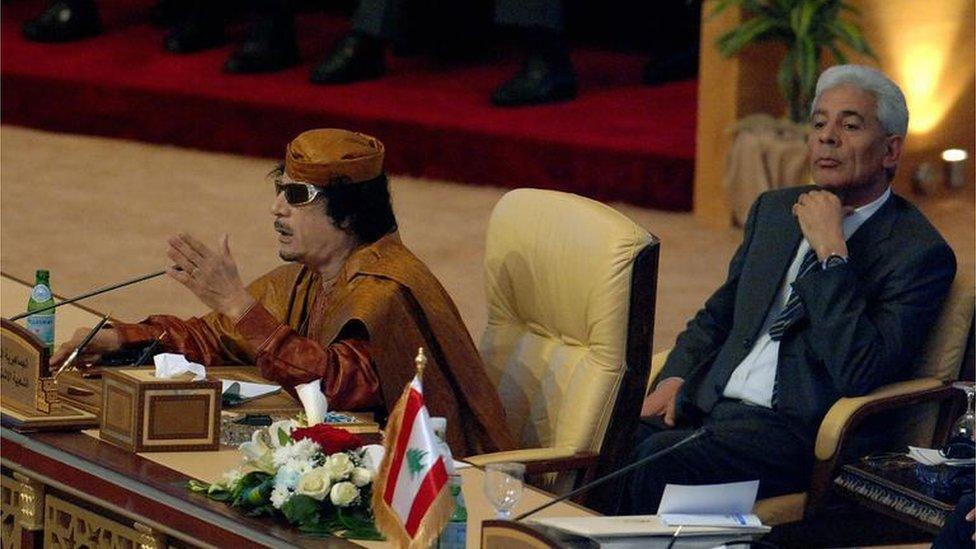
Moussa Kousa (right), pictured with Colonel Muammar Gaddafi in 2008
Mr MacKinlay also raised the case of Moussa Kousa, who was expelled from the UK in 1980 and went on to become Libyan foreign minister.
He asked why the UK authorities did not question Mr Kousa when he was in the UK for three days in March 2011.
Mr MacKinlay said if he had "been questioned or put before the courts, we could have discovered more about the cosy relationships, discussions and agreements that have thwarted the possibility of obtaining compensation from the regime for victims".
Former Prime Minister Tony Blair has been asked by the committee to give evidence at a future date.
During Northern Ireland questions in the Commons on Wednesday, independent MP Lady Hermon asked the government what pressure is being put on Libyan authorities to provide compensation.
Northern Ireland Office minister Ben Wallace said the prime minister is "very keen to try and seek some further compensation".
"Of course it is hard at the moment to try and negotiate with a Libyan government that is not functioning or in existence," he said.
- Published8 October 2015
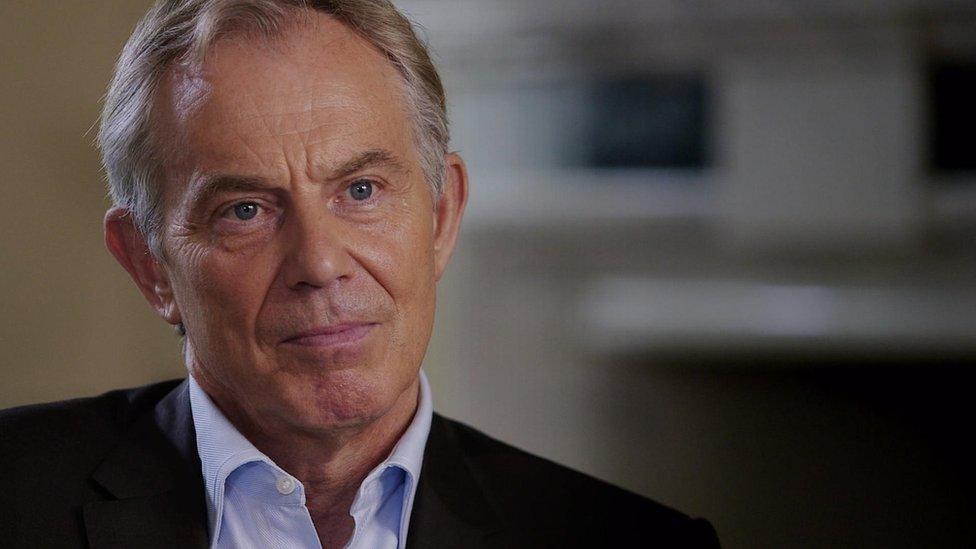
- Published9 September 2015
